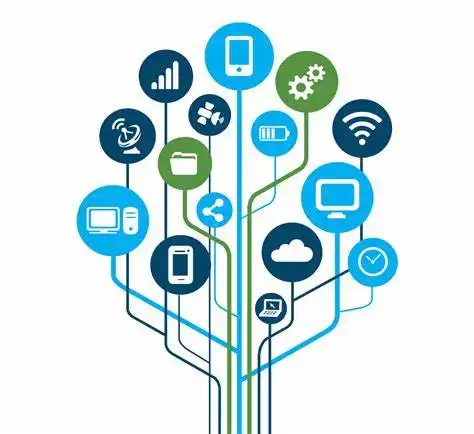The Federal Communications Commission (FCC) is set to propose the reinstallation of net neutrality protections, with a targeted date of October 19th. This news has caused a stir among industry experts, due to the implications it has on digital rights and internet access.
Net neutrality principles mandate that internet service providers (ISPs) must treat all data on the internet the same. They are prohibited from discriminating or charging differently based on user, content, website, platform, or application. The reestablishment of these principles could dramatically reshape the digital landscape.
The importance of net neutrality has been a subject of much discussion and disagreement. Some see it as a cornerstone of internet freedom, promoting transparency and fair competition. Others, particularly in the business industry, see it as stifling innovation and profitability.

The FCC's decision to bring back net neutrality is potentially significant. It suggests that the regulatory body is prioritizing the democratization of internet access and curbing the power of ISPs. The potential implications of this cannot be overstated.
Historically, net neutrality has had a rocky existence. Introduced during the Obama administration, it faced repeal during the Trump administration. However, the Biden administration appears to be returning to the principles of open internet via its FCC vote.
Revisiting the concept of net neutrality might rekindle heated debates. Some fear it could increase regulatory burdens on businesses, consequently hindering innovation and raising prices for consumers.
Despite such concerns, many insist on the critical role of net neutrality in preserving internet freedom. They argue its removal gave ISPs too much power, allowing them to control and manipulate online content access in pursuit of profit. This is especially worrisome in today's digital economy where internet access is a necessity.
Returns of net neutrality would restore provisions forcing ISPs to treat all online data equally. It would prohibit behaviors like blocking, throttling, or preferential treatment of internet traffic. Essentially, it would prevent ISPs from controlling what consumers can see and do online.
The topic has wider political implications, too. Democrat lawmakers, in general, support net neutrality, believing it ensures fair digital access for all. Conversely, Republicans tend to see it as government overreach, potentially stifling market dynamics.
Consequently, the FCC's proposed return to net neutrality may draw significant political attention. However, as an independent agency, FCC's actions are largely insulated from broader political dynamics. There's hope that this might ensure a more neutral standpoint.
Current FCC Chairwoman, Jessica Rosenworcel, is widely known for her support of net neutrality principles. Her leadership could be a crucial factor in reinstating these protections, despite potential political opposition.
As the FCC gears up to potentially bring back net neutrality, public responses vary. Many are optimistic about the return of a more level digital playing field. Others are more cynical, fearing increased governmental control and downsides for businesses and consumers alike.
On a global scale, the move could influence other countries in their digital policies. It could potentially push more nations towards advocating for an open internet, shaping a global trend towards net neutrality protections.
The public will be watching closely for FCC's actions come October 19th. A return to net neutrality could mark a significant leap towards preserving the principles of a fair and open internet, despite potential economic and political controversies.
As this move would resound globally, one cannot underestimate the importance of this potential decision. Deeper questions about digital rights, industry profitability, and government regulation are at stake as we await this crucial FCC vote.
Admittedly, a return to net neutrality would not solve all the challenges related to internet access and digital rights. However, proponents argue it would be a substantial step in the right direction, addressing power imbalances between ISPs and consumers.
In the end, the value of net neutrality might be subjective, depending on one's political and economic perspectives. For some, it's a safeguard for internet freedom, for others a potential constraint on business opportunities.
But there's no denying the significance of the FCC's impending decision. The October 19th deadline will mark a significant moment in digital history, with potential far-reaching implications for businesses, consumers, and the future of an open internet.
As we draw closer to the day in question, a host of different sentiments colour a seemingly straightforward regulatory decision. Yet at its core, it's a consideration of how best to balance industry innovation, consumer rights, and internet freedom.